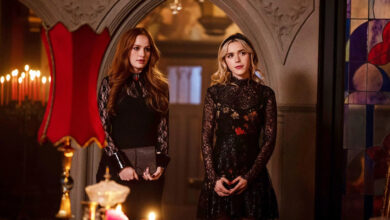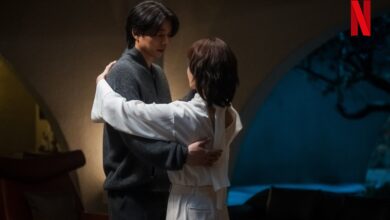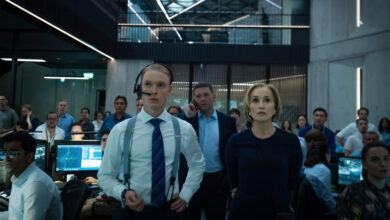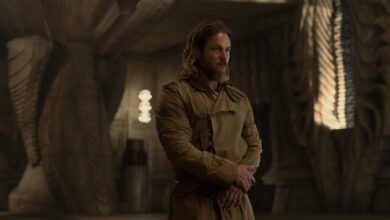The Pope’s Exorcist Ending Explained: What Was Asmodeus’ Plan? Who Is Asmodeous?
Awaited with curiosity by enthusiasts, The Pope’s Exorcist made its cinema debut on 13 April, with the indestructible Russell Crowe in the role of Father Gabriele Amorth. The film, as we explained to you in our review of The Pope’s Exorcist, is only nominally inspired by the writings of the controversial cleric who from 1986 to 2016 (the year of his death) held the role of chief exorcist of the Vatican and executed tens of thousands of rituals against demonic possession. The approach of director Julius Avery, halfway between the supernatural horror of titles such as The Conjuring and Hereditary, the comic book-tinged adventure and the buddy cop movie (the influence of Constantine is strong, but also that of Lethal Weapon!), is deliberately over the top and hits the mark precisely for its radical distancing from any real story.
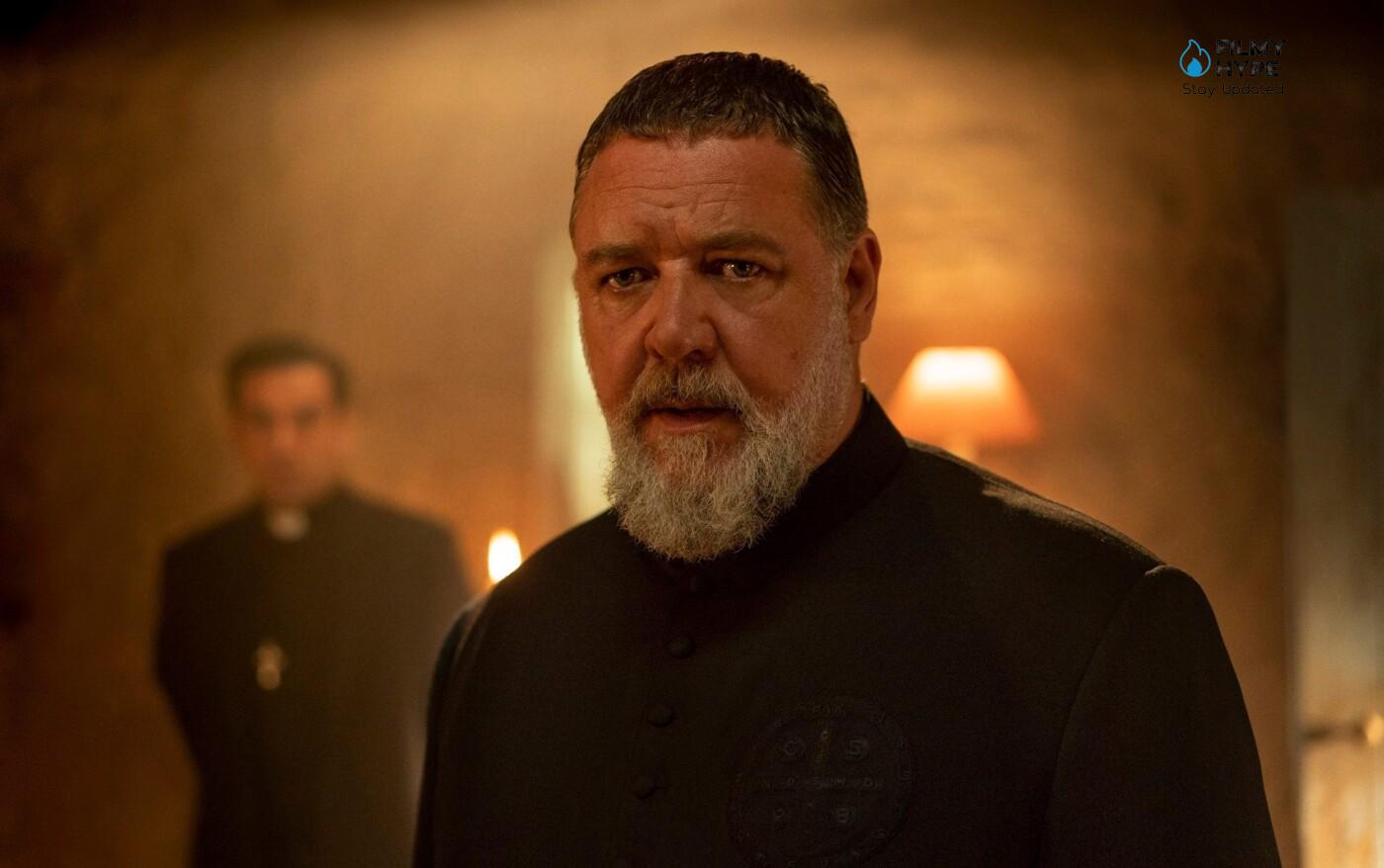
Father Gabriele Amorth in the cinema is not the austere man of faith that we might expect from direct and indirect sources on the biography of the religious, but a bold and irreverent exorcist, with the ever-present flask of whiskey constantly at hand and the cutting quip always ready, sometimes even on the verge of parody. A very simple but ultimately successful formula, which works and entertains. However, let’s retrace the last act of the film in more detail, which seems to open the door to a potential sequel or, why not, an entire franchise: here is our explanation of the ending of The Pope’s Exorcist, starring Russell Crowe.
The Pope’s Exorcist Review: Summary Recap
Summer 1987: after an exorcism in Tropea, Gabriele Amorth, investigator of the devil on behalf of the Vatican, is summoned before a commission of younger priests who would like to abolish the clerical department dedicated to this type of activity (Amorth, contemptuous of danger and by the pontiff himself, he replies “If you have a problem, talk to my boss”). At the same time, an American widow arrives in Spain with her two children to examine the restoration work on a church she inherited through her family. Ordinary administration, except that the second-born Henry begins to feel bad and then insults his mother and sister in a deep and threatening voice, asking to meet “the priest” while strange phenomena occur around him. Amorth is sent, who with the help of the local parish priest must solve the mystery of a building with which the Church has already had to deal…
The theme of exorcism has very strong roots in the collective imagination, an imagination enriched and in many ways also determined by cinema, with William Friedkin’s masterpiece. It, therefore, seems natural to approach The Pope’s Exorcist with a good dose of fear and suggestion, given that it is inevitable to let one’s mind run to the illustrious predecessors who tell the same figures. Well, nothing more wrong, because Avery’s film does not take himself seriously at all, and rather than telling the life of one of the most controversial and somewhat influential figures of the modern Catholic Church, it makes him a sort of skeptical and reluctant superhero who takes Evil extremely seriously and his very rare, demonstrations. Because if his intervention is highly requested, Father Amorth says without mincing words that 98% of the cases that are submitted to him are resolved with psychotherapy and doctors, without disturbing the well-founded powers of the universe.
We are dealing with a very rational character, despite his profession, a man who is not only a priest but a journalist, a lawyer, a careful observer of the human soul, a person who manages to understand whom he is dealing with and when his exorcist power is really in demand. And that’s exactly what happens when he is summoned to intervene in a mysterious case of possession in Spain, in a deconsecrated abbey where a mother with two children is dealing with demonic manifestations that seem very powerful. The youngest of her sons is possessed and the demon inside asks for the “priest’s” intervention. When Amorth arrives he is loaded with baggage with the tools of the trade but also with a good dose of skepticism, given his experience of him, yet he immediately understands that that battle will be really important for his life and the life of the Church, even.
Very far from the directorial and tonal refinement of The Exorcist, Avery’s film takes its cue from it, mainly in the more splatter manifestations, to veer on the extreme fantasy, with tones and settings that are very reminiscent of a 90s aesthetic which the verisimilitude and the take themselves seriously was not contemplated at all. In light of these considerations, The Pope’s Exorcist turns out to be a very entertaining film, absolutely unpretentious, and perhaps for this very reason the right product for what the public, far from cinemas, wants to see on the big screen. The potential is endless, so much so that the story, structured like an origin story of a superhero, could even open up to a real saga starring Amorth together with Father Esquibel, the protagonist’s helper with whom a Buddy movie dynamic is established, even a right arm essential for the final victory.
The Pope’s Exorcist Ending Explained: What Was Asmodeus’ Plan?
During the restoration work of a Spanish abbey, the powerful demon Asmodeus, ruler of Hell, takes possession of the soul of Henry, son of Julia and younger brother of the rebellious teenager Amy. It is the demon himself who requests the intervention of a priest and rejects the first clumsy interventions of the young Father Esquibel, attracting Gabriele Amorth, the exorcist of the Vatican, to Spain. In reality, it is a deception designed to launch a deadly attack on the heart of the Catholic Church: already in 1475, he had possessed some innocent people to attract the attention of the powerful exorcist Alonso de Ojeda, a Dominican friar who, in the following years, had played a prominent role in the rise of the Spanish Inquisition during the reign of Isabella of Castile.
Exploring the catacombs of the abbey, Father Amorth comes across an ancient secret, covered up by the Church: the demon had used his victims to possess Ojeda himself, who under the diabolical influence had then triggered the darkest and bloodiest persecutions religious of the late Middle Ages. Centuries later, the ruler of Hell is trying to repeat the same plan and intends to possess Father Gabriele Amorth to use as a lock to unhinge the Vatican from within. The demon relies on fears, suffering, and guilt: he took possession of Henry taking advantage of the trauma that the child suffered following the loss of his father, and subsequently also took possession of Amy, angry and discontented with the constant lack of attention from the mother. Moved with pity, Father Amorth is forced to give in, and barters his soul for those of the family: however, in a final desperate duel in the catacombs of the abbey, he finally manages to defeat and exorcise the demon with the decisive help of Father Esquibel. Asmodeus is definitively expelled from his body and sent back to hell.
A New “Boss” for Father Amorth
With the exorcism of Asmodeus, the Pope’s fight against a mysterious evil of supernatural origin that had manifested itself in conjunction with the possession of the protagonist also ceases in Rome. The pontiff warmly welcomes Father Amorth and his new assistant, Father Esquibel, and compliments them both on their excellent service to the Vatican. After the pleasantries, he reveals to them that Julia, Amy, and Henry have returned safely to the United States, and the boy is slowly recovering from his long and painful possession. Meanwhile, there is also a welcome novelty: traumatized by his sudden direct encounter with the forces of evil, the young and skeptical Bishop Sullivan, prefect of the Congregation for the Doctrine of the Faith and bitter opponent of the protagonist, has taken a period of leave from his post.
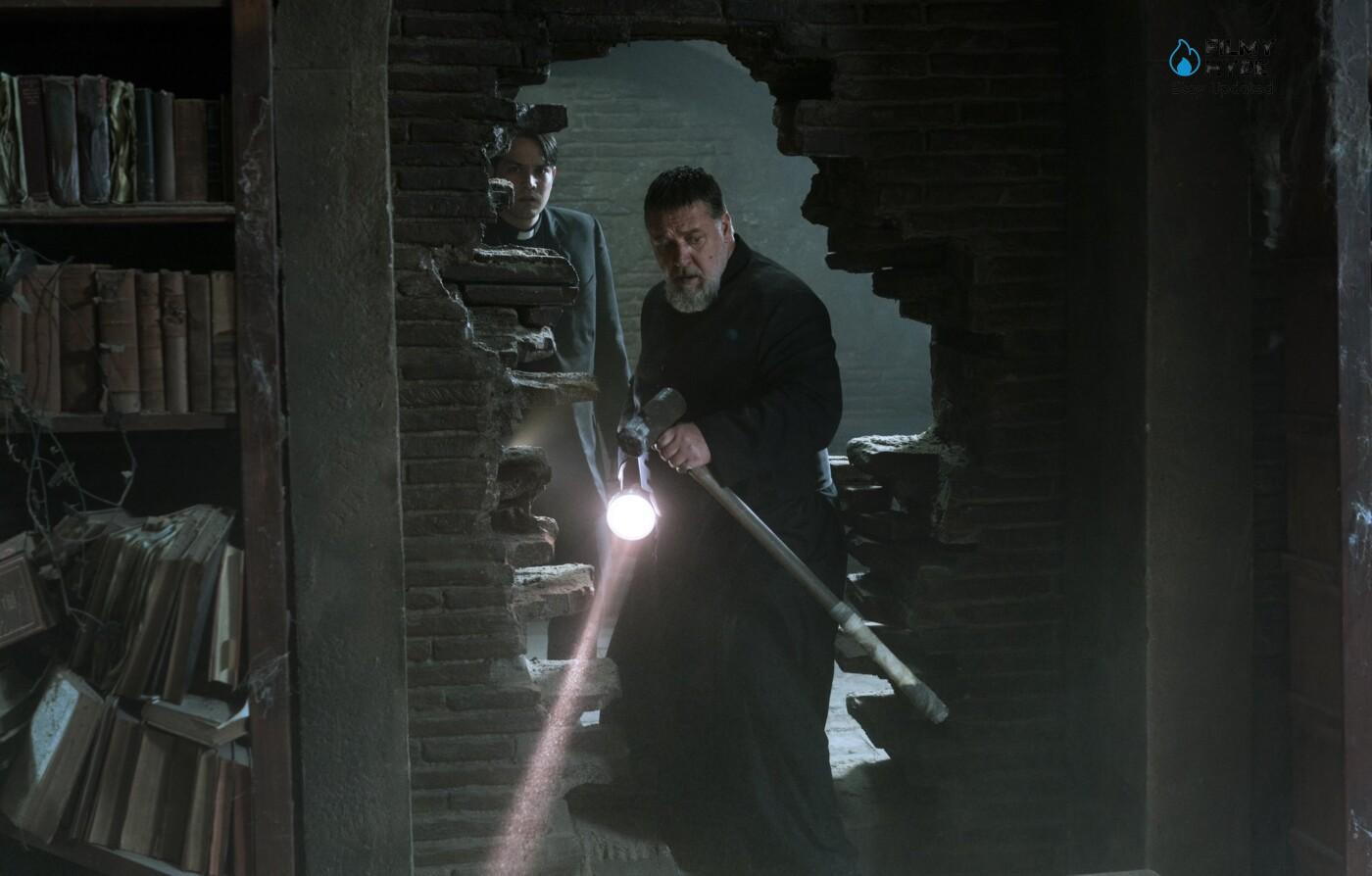
A curiosity: in 1987, the year in which the film is set, the office of prefect of the Congregation for the Doctrine of the Faith was actually held by none other than a certain Joseph Ratzinger! In the film, however, after the hateful Father Sullivan’s resignation, Father Lumumba will now enter the scene, an old friend of the protagonist, from this moment on, will have the task of supporting him and supervising his activities. A benevolent face to which, in an eventual sequel, the Amorth-Esquibel duo will have to report.
“Let’s Go to Hell!”
Ultimately, the ending of The Pope’s Exorcist is more than satisfactory and gives ample answers to all the open questions throughout the film. However, director Julius Avery leaves a clear glimmer open, which lays the foundations for a potential second chapter or, why not, for an entire franchise: a medieval map emerged from the catacombs of the Spanish abbey on which Asmodeus had tried in every way to put your hands, depicting the exact location of the other 199 demons who fell from the sky after the revolt of Lucifer.
Shortly thereafter, the camera lingers on a Dantesque depiction of the prince of demons himself, with his three heads intent on devouring the bodies of the supreme sinners Brutus, Cassius, and Judas Iscariot. Father Amorth’s new task, Bishop Lumumba explains, will be to hunt down the other 199 demons who fell to earth at the beginning of time, including Lucifer himself. An impossible job for a single exorcist, but perhaps within reach for a duo. “Let’s go to work! “, enthusiastically exclaims the young Father Esquibel. “Let’s go to Hell!“, replies the protagonist sardonically. In short, the eventual second chapter promises to be even crazier and more exciting than the first!


